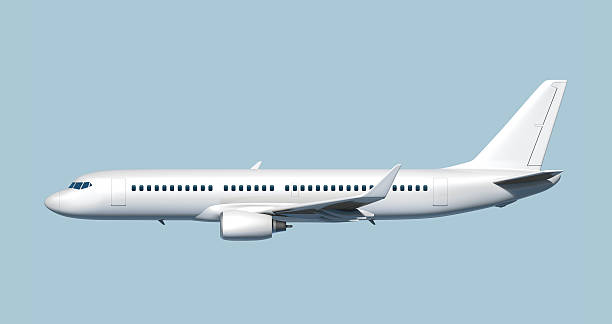Nigeria’s aviation industry stands at a pivotal juncture, characterized by rapid growth and significant challenges. As the country aims to position itself as a regional hub for air travel in West Africa, it faces both opportunities and obstacles that could shape the future of aviation in the region. With increasing passenger traffic, investment in infrastructure, and a burgeoning market for air travel, the landscape of Nigeria’s aviation sector is evolving.
A Booming Market
The aviation sector in Nigeria has experienced remarkable growth in recent years. According to the International Air Transport Association (IATA), Nigeria is projected to become one of the top aviation markets globally by 2035, with passenger numbers expected to reach over 200 million annually. This growth can be attributed to several factors, including a rising middle class, increased business activities, and an expanding diaspora seeking efficient travel options.
Domestic air travel has seen a surge, with airlines like Air Peace, Arik Air, and United Nigeria Airlines increasing their fleets and routes. Additionally, the emergence of low-cost carriers has made air travel more accessible to Nigerians, encouraging a culture of flying that was previously limited to a privileged few.
Infrastructure Development
To support this burgeoning demand, Nigeria has made strides in upgrading its aviation infrastructure. Major airports, including Murtala Muhammed International Airport in Lagos and Nnamdi Azikiwe International Airport in Abuja, are undergoing renovations to enhance passenger experience and improve operational efficiency. New terminal buildings, modernized facilities, and improved security measures are part of the efforts to meet international standards.
Moreover, the Nigerian government is investing in the construction of new airports and the expansion of existing ones, including the proposed Abuja Airport City project. This ambitious initiative aims to create an aviation city that will house hotels, offices, and retail spaces, further promoting Nigeria as a regional aviation hub.
Regulatory Challenges
Despite the optimistic outlook, Nigeria’s aviation industry grapples with significant regulatory challenges. The Nigerian Civil Aviation Authority (NCAA) is tasked with overseeing the sector, but regulatory inconsistencies and a lack of transparency have often hampered progress. Airlines frequently face hurdles in obtaining necessary permits, leading to operational delays and increased costs.
Additionally, the issue of safety and compliance remains paramount. Nigeria has faced scrutiny from international aviation bodies regarding safety standards and regulatory oversight. The country’s aviation sector must continue to work towards meeting global safety standards to gain the trust of international travelers and airlines.
Fuel Scarcity and Operational Costs
One of the most pressing challenges for Nigerian airlines is the high cost of aviation fuel, exacerbated by occasional scarcity. The aviation sector relies heavily on imported fuel, and fluctuations in global oil prices can have a significant impact on operating costs. Many airlines have had to raise ticket prices, which in turn affects passenger demand.
Moreover, the complexities of Nigeria’s foreign exchange policies make it difficult for airlines to access funds needed for fuel purchases. The need for a more stable and predictable fuel supply is critical for the sustainability of the aviation industry.
Navigating Economic Factors
The broader economic landscape also affects the aviation sector. Nigeria’s economy has faced challenges, including inflation, currency devaluation, and fluctuating oil prices. These economic factors directly influence disposable income, which in turn impacts travel demand. As the country works towards economic stability, the aviation industry must adapt to changing consumer behaviors and spending patterns.
Innovation and Technology
In the face of these challenges, innovation and technology are paving the way for a brighter future in Nigeria’s aviation sector. The integration of advanced technology into airline operations and airport management can enhance efficiency and improve customer service. Initiatives like online booking platforms, automated check-in processes, and real-time flight tracking have transformed the travel experience for Nigerian passengers.
Furthermore, the advent of drone technology and unmanned aerial vehicles (UAVs) is creating new opportunities within the aviation sector. These technologies can revolutionize logistics, agriculture, and surveillance, further expanding the aviation ecosystem in Nigeria.
Conclusion
As Nigeria’s aviation industry continues to take flight, it is crucial to navigate the myriad challenges while leveraging opportunities for growth. Investment in infrastructure, adherence to safety standards, and the implementation of transparent regulatory frameworks will be key to sustaining the momentum in the sector.
With a robust domestic market, increasing international connections, and a commitment to innovation, Nigeria is well-positioned to become a leading player in West Africa’s aviation landscape. The journey ahead may be fraught with challenges, but the potential for a thriving aviation sector is within reach, promising to connect people, cultures, and economies in ways that transform the nation’s travel landscape.







